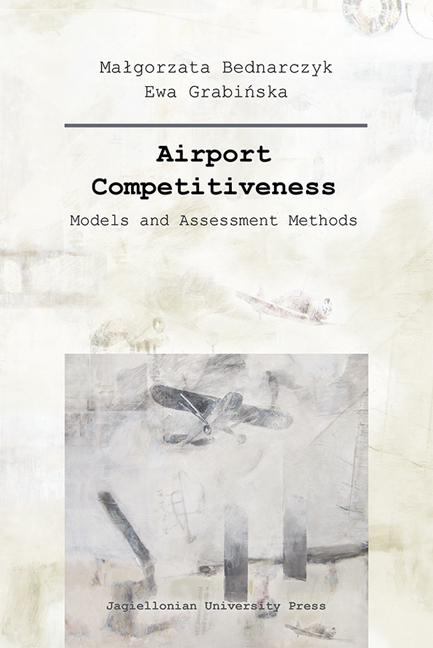Book contents
- Frontmatter
- Contents
- List of Common Abbreviations
- Dedication
- Introduction
- 1 The Essence of Air Transport and its Socio-Economic Role
- 2 Significance of Competitiveness in Air Transportation
- 3 Foundations for Assessing Competitiveness of an Airport
- 4 External and Internal Determinants of Regional Airport Competitiveness
- 5 Competitiveness Model of a Regional Airport
- Conclusions
- List of Tables and Figures, Drawings and Graphs
- Literature
- Appendix
- List of Graphs and Tables in the Appendix
Conclusions
Published online by Cambridge University Press: 10 January 2018
- Frontmatter
- Contents
- List of Common Abbreviations
- Dedication
- Introduction
- 1 The Essence of Air Transport and its Socio-Economic Role
- 2 Significance of Competitiveness in Air Transportation
- 3 Foundations for Assessing Competitiveness of an Airport
- 4 External and Internal Determinants of Regional Airport Competitiveness
- 5 Competitiveness Model of a Regional Airport
- Conclusions
- List of Tables and Figures, Drawings and Graphs
- Literature
- Appendix
- List of Graphs and Tables in the Appendix
Summary
Over the past years, the Polish civil aviation sector – regional airports in particular – has been developing intensively. As a consequence of the political transformation of the 1990s and Poland's accession to the European Union, there were strong institutional and legal changes. Socio-economic conditions, in which both old and new Polish airports operate, have changed significantly as well. Transformation that has occurred in the last two decades in Poland and in Europe contributed to the increased competition in the air transport market.
The phenomenon of competition is generally seen as a positive economic category influencing the growth of business efficiency, and favouring the restoration of equilibrium in the economy. However, in times of crisis, intensification of competitiveness can make it difficult for entities, operating in the demanding and difficult air services market, to function and generate income. It may even threaten their existence. Therefore, management boards of companies are looking for reliable and objective data – information and measures of competitiveness – to make accurate business decisions.
In the case of airports (compared with enterprises in the classical meaning of the word), the situation is far more complex, because a modern airport is a very sophisticated economic organism, the functioning of which is not so easy to evaluate. The progressive processes of globalization and liberalization, as well as the associated internationalization of air transport, contribute to the enhancement of competitiveness in this sector. These processes also apply to Polish airports, which had been transformed into objects of a new type. Their main and essential purpose is to increase the efficiency of management and to improve competitiveness. The problem of the development of air transport, and the associated issue of the competitive position of the airport, is relatively well presented in foreign literature. However, in Polish literature it has not been shown in enough depth. This monograph has designated and specified determinants of competitiveness of Polish regional airports, which are necessary for the strategic management of the airports. The field of strategic competitiveness was shown by multilateral relationships and dependencies between a regional airport and various external determinants, and by relating them to actions by the managers of the regional airport.
- Type
- Chapter
- Information
- Airport CompetitivnessModels and Assessment Methods, pp. 127 - 132Publisher: Jagiellonian University PressPrint publication year: 2015

